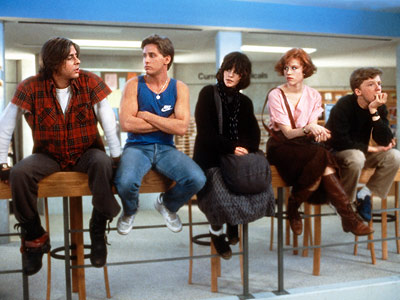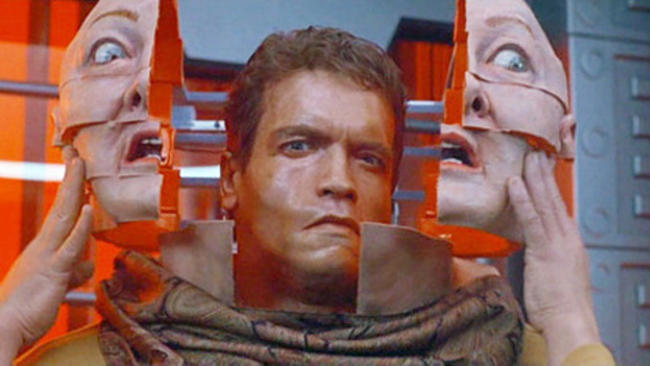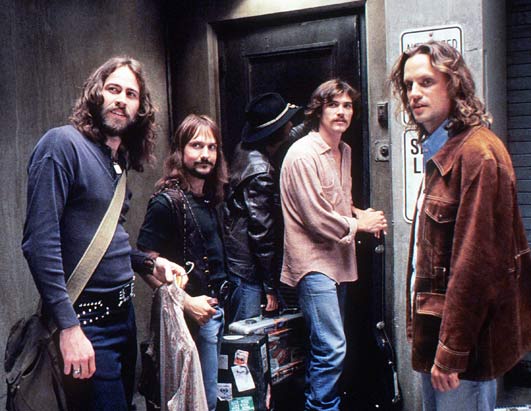I desperately want to believe in the teen film as a valid interpretation of reality. That what I see for an hour and a half is not falsified in any way, but is a real, honest depiction of how it truly was to be young. I truly do. But unfortunately, the ideas touched on in teen films are as fabricated as the idea that being cool in high school truly meant anything.
When I watch a teen film, I am flabbergasted at the unrealistic portraits constantly depicted within the narrative. I mean, I have never been to an epic house party like the ones I have seen in films like ‘American Pie’ and ‘Can’t Hardly Wait’, or to a prom/high school social where the kids suddenly break into an impromptu choreographed dance session like in ‘She’s All That’. Being a teenager is the most crucial stage of one’s life. It’s where we learn and adapt into who we will eventually become as an adult. We are literally coming-of-age because we are dealing with pertinent issues for the first time. Subjects such as acceptance, alienation, delinquency, rebellion, sex, gender, and nostalgia are of great importance to us, and thus are continuously embraced by the teen film.
But the way they are approached is troublesome. In ‘I Love You, Beth Cooper’, a high school nerd, Denis, embarrasses himself during his valedictorian speech after he confesses his love for (you guessed it) Beth Cooper, the hottest and most popular girl at school. After confronting him about this after the graduation ceremony, he invites her to his party. She ends up showing up (at first as a joke), but through his unwavering desire for her happiness, she learns more about herself and becomes humbled by his words. Just like in real life!
Ah, Hollywood, realism is not your forte*.
I understand that most teenagers’ personas are merely illusions intent on masking the realities of who they truly are becoming (which is a constant struggle), but the reality of the situation is that one rarely identifies their true selves out of fear of persecution and ridicule from peers.
High school is melodrama. We are identified as embodying particular traits, and if we waver from our personality quirks, we are sometimes confronted and ostracized- deemed as some sort of traitor to the reality of who our friends THINK we are as individuals (even though we are still struggling to discover ourselves). This time of our life is capable of inflicting serious damage upon our maturing psyches. Our identities are shaped as a result of our experiences, because high school is the sculptor and we are the clay. We are the result of its touch.
‘The Breakfast Club’, though flawed as a result of stereotyping, is probably the most realistic portrait of teenagers**. The film perfectly identifies the clique nature that is high school. You wouldn’t have to look any further than your lunch cafeteria to identify the reality of this issue.
From my own personal experience, every day I went to eat lunch at my local educational institution, I would sit at the same table, and with the same group of friends. I would look around and spot the jocks sitting at their section of the cafeteria. To my right, I would see the yearbook committee at their usual spot. I would look ahead and see the ‘cool’ people section of the dining area. Then I would look to my left and see the ‘nerds’ (I’d define myself as something, but remember, I was still attempting to find myself ).
I remember the one day that I went over and sat with the sports crowd. I didn’t think anything of it until the next day when I went to return to my usual seat, and was confronted by some of my friends as to why I turned my back on them. Was it because I was too ‘cool’ now? Ah, the ridiculousness of high school.
Whether we believe it or not, we were all a part of some sort of clique. We wouldn’t be caught dead associating with other, ‘less-fortunate’ members of our high school for a large portion of time (we remained loyal to the members of our particular groups). So when Hollywood constantly depicts the most amazing guy or girl falling for one of the ‘geeks’, it unfortunately grounds the film into the reality that it is still a fictional piece of entertainment. Fear of ridicule will always curb these valiant gestures, no matter how honest they are. The quarterback will always date the cheerleader, and the ‘geek’ will always date the ‘dork’. That’s just the way it is. There can be no cross pollination because high school is defined by the preconceived notion that ‘as it always has been, it must always be like’.
*Life is defined by choice. The choices we made during this time period have now shaped us into the individuals we are today. And here I used to think that high school was just a waste of time.
**For all of Hollywood’s honest intentions, they still depict a falsified reality (no matter how fantastic and wonderful the events seem to be). When I say the most realistic portrait, I am simply referring to the movies defined as ‘teen films’. There are plenty of other movies designed to deal with teen angst on a much more serious level (like ‘Adventureland’, ‘Elephant’, Thumbsucker’), but I am simply referring to the teen films that are advertised as light-hearted and fun (Usually found within the factory of John Hughes-‘Sixteen Candles’, ‘Pretty in Pink’, ‘Ferris Bueller’s Day Off’).



